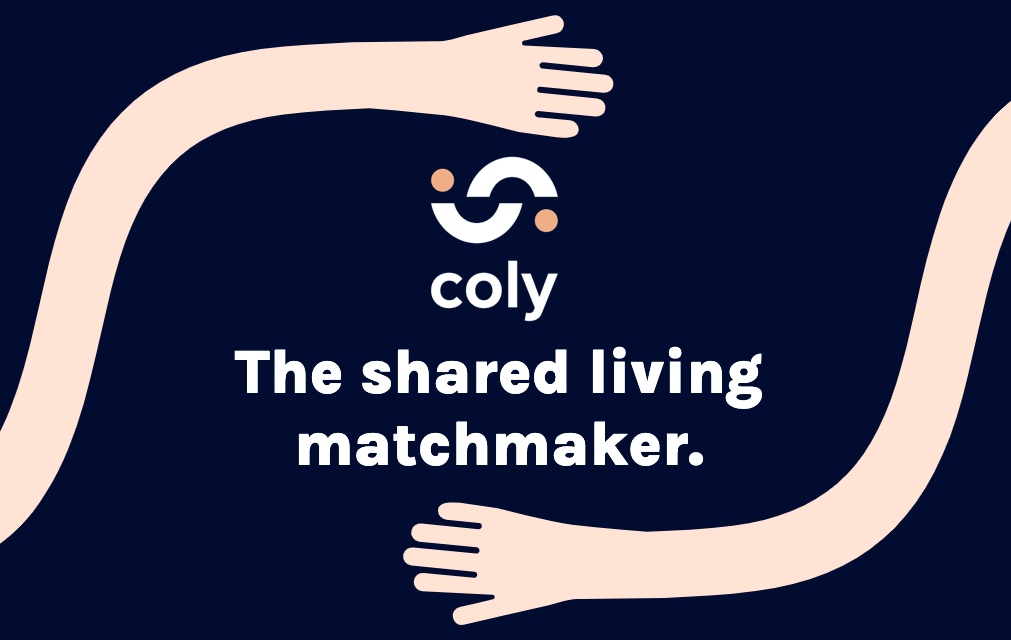Housemate compatibility plays a key role in creating a thriving coliving community experience. Indeed, it greatly impacts resident satisfaction and retention rates. Yet this can be one of the trickiest elements to get right as a shared living operator.
In this article with guest author Linnéa Brenden, Lead Data Scientist and psychologist at Coly Technologies, we discuss how using a matching algorithm can boost housemate compatibility and therefore enhance the community experience. In addition, we introduce you to the Coly Matching Engine (Coly ME) tool.
So let’s get into it!
According to a shared living survey from December 2021, a negative housemate experience caused 54% of respondents to say they would be “extremely likely” to move out.
Having people regularly move out is a problem for shared living businesses. This is because the business model typically depends on tenants staying for extended periods. Even for short-term coliving homes, negative reviews are bad for business.
Obviously, there are many reasons why negative experiences happen and why communities can fail. However, one major reason is a lack of matching residents in a way that promotes a thriving community experience.
5 Ways a Matching Algorithm Can Foster Community
Until now, there have been limited ways for coliving operators to match residents successfully. The most common way has been by relying on chance or availability. But there is a better way: the matching algorithm way.
As we know, dating apps have widely been using algorithms to avoid the worst pitfalls when matching. Also, in the case of hiring people, psychometric tests and algorithms have become a global standard for finding the best person to fit the rest of the team. As such, matching algorithms help increase the odds that people are a good fit with others.
This same logic can be applied in a shared living setting. As much as it is important to find a good match romantically or professionally, it is beneficial to match people that are going to share a home and live together.
As such, we invite you to consider using a matching algorithm for your shared living business. Accordingly, we dive into five ways such a tool can help support a thriving community.
1. Optimize Social Functioning for Enhanced Satisfaction and Retention
A matching algorithm can increase social functioning by curating and optimizing groups of tenants based on personality and values rather than randomly forming groups.
Well-functioning groups can contribute to sustaining or increasing retention rates because people will be happier and want to stay longer. Subsequently, this means lower costs for marketing and new tenant acquisitions.
In addition, increased social functioning also leads to higher levels of general living satisfaction and feeling more at home. Thus, increased levels of NPS – Net Promoter Score – can be obtained. Indeed, NPS is an important measure of growth as it reflects how much your tenants are likely to recommend your shared living space to friends.
2. Make Decisions Based on Data
Today’s most successful organizations use data when making high-impact business decisions. Indeed, according to the Harvard Business School, data-driven decision making has many benefits including making more confident decisions and realizing cost savings.
With this in mind, we can safely assume that a data-driven matching algorithm brings similar benefits to a shared living business. Indeed, a matching algorithm that asks tenants about their personalities, values, and interests, etc, can collect a significant amount of data. This data can then be used to optimize social and group functioning.
3. Reduce Discrimination and Biases
In the coliving industry, operators often use interviews to recruit and organize tenants into different corridors, apartments, or houses.
However, the field of organizational psychology has shown that interviews can be quite unreliable. The interviewers tend to be overconfident about their judgment of other people and different biases can occur. Some of these biases include:
- Stereotyping: when we judge other people based on their gender, ethnicity, socioeconomic status etc.
- The halo effect: when we assume someone possesses other positive qualities because they possess one.
- The first impression effect: our tendency to form an opinion about someone very fast.
Indeed, our brains are wired to take shortcuts to make decisions faster. If we rely on interviews for grouping people together in coliving, we can expect biases that may lead to suboptimal decision-making.
With the help of a test-based matching and placing algorithm, you reduce the risk of discriminatory behaviour.
4. Expectation Management and Conflict Management
Unquestionably, moving into a place with people of different backgrounds can often lead to some tensions. Indeed, conflict arises whenever individuals have different values, opinions, needs, and/or interests and are unable to find a middle way. This is unavoidable in coliving. However, research by Coly shows that conflict management is more important than the number of conflicts for residents to feel at home in the shared living.
As such, a matching algorithm tool can offer useful information for better living together with others. For instance, a personalized profile can include advice on social skills and how to manage anxiety, rather than just on decreasing conflicts. In addition, a common framework and vocabulary is useful for creating a more open context for discussions and navigating tricky social situations.
5. Save Time When Scaling Up
Interviews can be time-consuming and the recruitment process can take a lot of time. Using a matching algorithm can help optimize the tenant recruitment process and save you time as you scale up your shared living business.
However, you do not want to compromise on the quality of the process and choosing tenants. Indeed, there is a risk that if you do, it will take a hit on your operations as you scale because your tenants will be less happy. As such, a well-designed matching algorithm can give you the quality of tenant selection/grouping that you want at the speed/scale that you need.
In the next section, we explore a specific matching algorithm that you can start to use to gain all these benefits: the Coly Matching Engine (Coly ME).
Introducing Coly ME- The Matching Engine
The team at Coly has for several years been grappling with two key challenges:
- How do we create a stable social living environment?
- How can we improve the tenant experience at scale?
Coly began developing the Coly Matching Engine: A scientifically based matching algorithm for shared living.
The Coly ME tool helps operators match tenants of a shared living space based on personalities, values, and motives. Also, it provides tenant profiles – describing personality and values in combination with shared living guidance.
Thanks to positive success stories, the Coly team realized that Coly ME was meeting a need that many other shared living operators were having. As such, they decided to commercialize and offer the tool to other operators. We invite you to explore Coly ME and read more about:
- What it is
- How it works
- Research and development behind it
- Validity and reliability of the tool
- Case study and testimonials about its use
- The founding team
Keep Learning About Community
In conclusion, until now, there has been little exploration of how to address the challenge of housemate compatibility in shared living. We hope this article has made clear how using a matching algorithm is one way to improve the chances of social functioning and of creating a community that thrives.
You can read about other ways to foster community by exploring the following:
- The Community Facilitation Handbook: a practical guide that discusses the importance of a thriving community for coliving businesses. The Handbook also offers tips on how to facilitate authentic community experiences.
- How to Foster Thriving Community: a keynote summary on how a thriving community is beneficial for both the members and the business side of shared living.
This article has been coauthored for you by:

Linnéa has several years of experience in psychological test development. I have a passion for working with health-promoting interventions. COLY are on a mission to spread the evidence-based tools that already are a norm in recruitment businesses - to help create an amazing Community in the shared living branch!
Transformational Coach and facilitator. Trainer in mindfulness, sharing circles, and how to live and lead more consciously. Co-author of the Community Facilitation Handbook and the Coliving Apps & Tech Guide. Facilitates community engagement strategies.
